
Kód: 04750027
Machiavelli's Three Romes
Autor Vickie B. Sullivan
Machiavelli's ambiguous treatment of religion has fuelled a contentious and long-standing debate among scholars. Whereas some insist that Machiavelli is a Christian, others maintain he is a pagan. Sullivan mediates between these d ... celý popis
- Jazyk:
 Angličtina
Angličtina - Väzba: Pevná
- Počet strán: 246
Nakladateľ: Cornell University Press, 1996
- Viac informácií o knihe

49.89 €

Skladom u dodávateľa v malom množstve
Odosielame za 12 - 17 dní
Potrebujete viac kusov?Ak máte záujem o viac kusov, preverte, prosím, najprv dostupnosť titulu na našej zákazníckej podpore.
Pridať medzi želanie
Mohlo by sa vám tiež páčiť
-
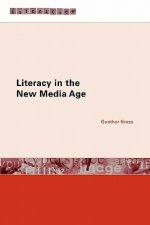
Literacy in the New Media Age
68.07 € -

God, the Poet and the Devil
19.19 € -

How to Write a Poem
44.45 € -

Contemporary American Judaism
49.28 € -
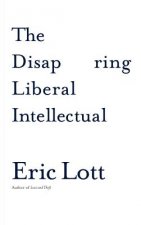
Disappearing Liberal Intellectual
36.95 € -
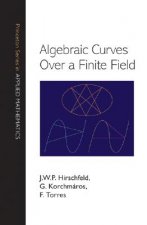
Algebraic Curves over a Finite Field
200.11 € -

Another Home Invasion
17.96 € -4 %
Darčekový poukaz: Radosť zaručená
- Darujte poukaz v ľubovoľnej hodnote, a my sa postaráme o zvyšok.
- Poukaz sa vzťahuje na všetky produkty v našej ponuke.
- Elektronický poukaz si vytlačíte z e-mailu a môžete ho ihneď darovať.
- Platnosť poukazu je 12 mesiacov od dátumu vystavenia.
Viac informácií o knihe Machiavelli's Three Romes
Nákupom získate 123 bodov
 Anotácia knihy
Anotácia knihy
Machiavelli's ambiguous treatment of religion has fuelled a contentious and long-standing debate among scholars. Whereas some insist that Machiavelli is a Christian, others maintain he is a pagan. Sullivan mediates between these divergent views by arguing that he is neither but that he utilizes elements of both understandings arrayed in a wholly new way. She develops her argument by distinguishing among the three Romes that can be understood as existing in Machiavelli's political thought: the first is the Rome of the Christian era, dominated by the pope; the second is the republican Rome of pagan times, which Machiavelli praises; and the third is an idealized Rome that is neither entirely pagan nor entirely Christian. In part 1, Sullivan examines Machiavelli's treatment of Christian Rome to find that in his view the Church and the beliefs of Christianity have fostered grave political problems. Indeed, he contends that Christianity exercises a type of tyrannical rule over human beings. His recognition motivates his seemingly enthusiastic turn to the pagan Rome of the "Discourses". Examining his treatment of pagan Rome in part 2, Sullivan finds that Machiavelli is critical of this apparent alternative to Christian Rome. In particular, Machiavelli demonstrates that republican Rome proved inept at handling its ambitious men who vied for power. Sullivan also shows how Machiavelli infuses his discussions of republican Rome with terms evocative of Christianity in a way that suggests Christian governance ultimately derived from pagan Rome. The ancient city is an insufficient model for the people of his times, and thus he proposes an idealized Rome that will transcend the problems both of Christian and of pagan Rome. The character of Machiavelli's new Rome provides the focus of Part 3. Sullivan argues here that Machiavelli's new Rome will embody certain elements of the two other Romes yet will overcome the failings of each. She shows Machiavelli's thought to be a highly original response to what he understood to be the crisis of his times. Sullivan draws primarily from the "Florentine Histories", "The Prince" and the "Discourses" to offer a unique study of Machiavelli's political thought. Her examination of Machiavelli's three Romes will interest scholars of political science and political philosophy.
 Parametre knihy
Parametre knihy
Zaradenie knihy Knihy po anglicky Humanities Religion & beliefs Religion: general
49.89 €
- Celý názov: Machiavelli's Three Romes
- Podnázov: Religion, Human Liberty, and Politics Reformed
- Autor: Vickie B. Sullivan
- Jazyk:
 Angličtina
Angličtina - Väzba: Pevná
- Počet strán: 246
- EAN: 9780875802138
- ISBN: 0875802133
- ID: 04750027
- Nakladateľ: Cornell University Press
- Hmotnosť: 28 g
- Rozmery: 216 × 140 × 22 mm
- Dátum vydania: 01. August 1996
Obľúbené z iného súdka
-
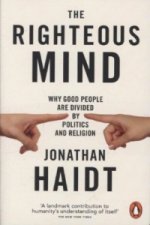
The Righteous Mind
15.19 € -13 % -

Screwtape Letters
11.18 € -23 % -

End of Faith
9.85 € -18 % -

Secular Age
88.19 € -

The Psychology of Selling
15.49 € -23 % -

As a Man Thinketh
6.66 € -

Conversations With God
11.28 € -25 % -

Scientific Healing Affirmations
6.87 € -

Return of the God Hypothesis
24.22 € -23 % -

The Greatest Salesman in the World
8.92 € -22 % -

The Perennial Philosophy
16.62 € -15 % -

Western Esotericism: A Guide for the Perplexed
46.50 € -

Waking Up
10.98 € -24 % -

Holy Bible
60.06 € -
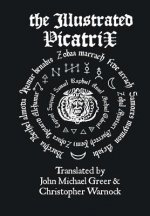
Illustrated Picatrix: the Complete Occult Classic of Astrological Magic
62.93 € -

God's Undertaker
12.31 € -23 % -

Koran
21.96 € -

You Are the Universe
15.49 € -23 % -

Princess Majestic Bible Tabs
7.18 € -5 % -
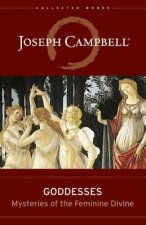
Goddesses
22.89 € -19 % -

History of Christianity
18.68 € -23 % -

Nature of the Psyche
17.65 € -17 % -
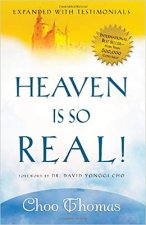
Heaven is So Real
13.24 € -19 % -

Religions Book
20.01 € -21 % -

Mohammed
21.96 € -

Original Aramaic New Testament in Plain English with Psalms & Proverbs (8th Edition Without Notes)
35.72 € -

God-Shaped Brain
17.34 € -19 % -
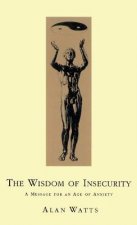
Wisdom Of Insecurity
14.47 € -23 % -

Breaking the Spell
12.82 € -24 % -

Benedict Option
15.49 € -23 % -

Delomelanicon
38.08 € -
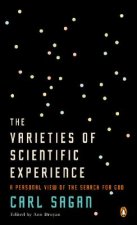
Varieties of Scientific Experience
24.43 € -7 % -

Varieties of Religious Experience
14.67 € -20 % -

Nine Doors of Midgard
26.17 € -

Devil's Delusion
21.35 € -

Experience of God
17.75 € -17 % -

Sekhem Apep
25.15 € -

ADAMU - Luciferian Tantra and Sex Magick
20.94 € -

Kahuna Magic
11.80 € -5 % -

Unknown Life of Jesus Christ
9.64 € -

Perfect Heresy
13.34 € -23 % -

Pensees
12.11 € -16 % -
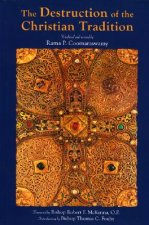
Destruction of the Christian Tradition
33.57 € -

Kingdom of God Is Within You
13.85 € -3 % -

Words of Christ
23.81 € -4 % -

Green Man Unmasked
21.24 € -

Better Than Good
16.42 € -19 % -

History, Analysis and Secret Tradition of the Tarot
19.29 € -

Meister Eckhart on Divine Knowledge
22.07 € -14 %
Osobný odber Bratislava a 2642 dalších
Copyright ©2008-24 najlacnejsie-knihy.sk Všetky práva vyhradenéSúkromieCookies


 21 miliónov titulov
21 miliónov titulov Vrátenie do mesiaca
Vrátenie do mesiaca 02/210 210 99 (8-15.30h)
02/210 210 99 (8-15.30h)